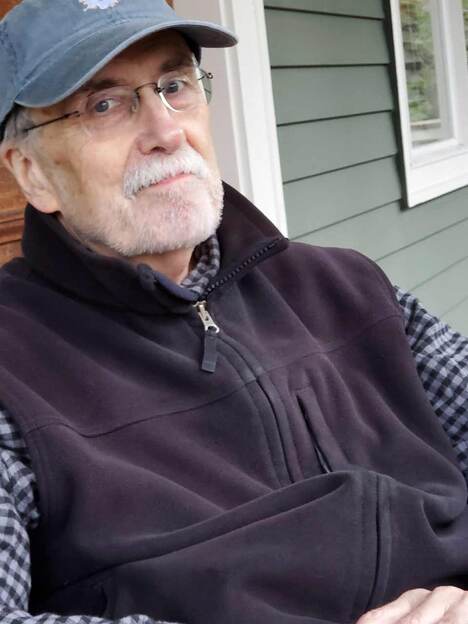SPOTLIGHT ON DON NELSON, ACTOR & DIRECTOR Don Nelson Don Nelson Interviewed by Kira Cramer, Executive Director KIRA: Tell us about your experience with theater. DON: Before I connected with The Merc, my last acting had been in a high school production of The Mouse That Roared. I played a crazy general, I think. About 10 years ago, Jane Hubrig and Ki Gottberg convinced me to take a role in Twelfth Night, which Ki was directing with a Western setting. I played Sir Toby Belch, a drunken womanizer, so typecasting right off the bat! I don’t know what I was thinking going straight from nothing to Shakespeare, but I had a great time with the cast and crew and have been hooked ever since. I also acted in a Readers Theater production of Morning’s at Seven, and a full production of The Importance of Being Earnest (so, I went from a drunken womanizer to an Anglican minister — easy transition). I rehearsed for the full production of The Real Inspector Hound, but had to drop out at the last minute because of a medical issue. Big disappointment, especially in that it turns out my character was in fact the “real” Inspector Hound. I have directed two Readers Theater productions (The Gift of the Magi and The Lifespan of a Fact) and one full production (Rope). Each was a different experience, all were incredibly rewarding. KIRA: What excites you about live theater? DON: Engaging with the audience, taking them to someplace they have never experienced for a couple of hours. During that time, the audience and cast agree to suspend disbelief and remove themselves from the rest of the world, in a shared space. It’s intimate, personal and often emotional. And there’s the uncertainty of being “live” — it’s like a tightrope walk every night. You have to be OK with that challenge, as nervous as it might make you (and I am always nervous). KIRA: Why is it important in a small community like the Methow Valley? DON: It’s a creative outlet and opportunity for people who thrive in that kind of environment (and it seems there are plenty of us). For audiences, it’s a chance to experience excellent and diverse productions and enjoy the creative talents of people they know. For me, it’s a way to not be “the publisher” for a while, and take part in something I enjoy. KIRA: Can you share a unique experience you have had in a theater setting... as an actor or director? DON: In a broader sense, I have realized (and used to my advantage) that there are similarities in what I do as a newspaper editor and what I do as a director. The parallels are interesting. I explored that connection in an essay I wrote for Nieman Storyboard, a website devoted to narrative writing and editing skills. You can find it at The role of editor as director. The one generic lesson I’ve learned is that, when you are putting a play (or a story) together, everything is intentional. KIRA: What draws you to a particular script like Rope or The Lifespan of A Fact? DON: I like intriguing, nuanced characters and moral ambiguity. Rope was a psychological thriller that posed questions about how far someone would go to prove their beliefs. Lifespan took on a hot-button topical issue that is not easily resolved, as we learned from a very well-written script which gave each of the characters a lot to do. KIRA: As a director, what do you hope to accomplish? DON: For the audience, I would hope they’d come away asking questions and talking about what they just saw. For the cast, I would like them to feel invested in the characters and be respected for their efforts to inhabit the roles; and to feel like part of a supportive team. I’m not a taskmaster director, I don’t think — I try to convey my sense of what the play is attempting to accomplish, and what each character contributes to that. But I do go in with a very clear idea of what I want to happen. KIRA: Anything else you would like us to know? DON: There are all kinds of ways to get involved in community theater, and every one of them is crucial to a successful production. You don’t have to act or direct to have a meaningful “role” in bringing a play to life. A lot of behind-the-scenes work goes into making it possible for those actors to walk out on the stage every night (and they are grateful for it). Comments are closed.
|
Site Search:
MENU
Thank you to our sponsors!
The Merc Playhouse | 101 S. Glover Street | PO Box 425 | Twisp, WA 98856 | 509.997.7529 | [email protected]
The Merc Playhouse is a registered 501(c)3.
The Merc Playhouse is a registered 501(c)3.






